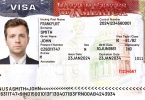So you want to land that dream job in the USA? It’s definitely possible, but you’ve got some work to do.
As a Nigerian, getting hired for a position in America won’t be easy, but if you go in with realistic expectations, prepare thoroughly, and don’t get discouraged by rejections, you’ve got a shot
There are legal hoops to jump through, like obtaining the proper work visa, and employers often prefer local candidates.
Read Also: How to Get Pega Jobs in the USA
But many Nigerians have found success, and so can you. It will take persistence, networking, polishing your resume, and targeting companies interested in diverse, international talent.
How to Get a Job in the USA From Nigeria
So you want to land a job in the USA from Nigeria? It can definitely be done, but you’ll need to put in the work.
Here are some tips to help get you started:
1. Research the Job Market and Your Industry
To land a job in the USA from Nigeria, you must understand the job market and your industry of choice.
Do your homework; the more you know about the job market and your industry, the better prepared you’ll be to find the proper role.
Here are some key areas to research on:
A. The Opportunities, Skills, and Experience in Demand
Check sites like Indeed, LinkedIn, Monster, and Glassdoor to browse listings for your target jobs.
Look at the required qualifications, salary ranges, and companies that are hiring. You may find openings you never considered before!
Also, search for industry reports on growth areas and emerging jobs. The tech sector, healthcare, and renewable energy are hot fields now.
Look for positions labeled “open to foreign applicants” or “sponsorship provided.”
B. See What’s Hot in Your City or State of Choice
Some locations have more openings for specific roles. If you have family or friends in the US, ask them about the job market where they live. They can provide on-the-ground insight.
C. Top Companies in Your Industry
You can also check company websites of places you’d like to work to see if they accept international applications.
Follow them on social media to learn about their culture and values. Some may sponsor work visas, so keep them on your radar.
2. Develop Skills That Will Make You an Attractive Candidate
Focus on developing expertise in a high-demand field like tech, healthcare, or engineering.
Learn software, tools, and technologies used in your field. Stay up-to-date with the latest practices.
Take additional courses or pursue advanced degrees in high-demand areas.
Get additional training or education if needed. The more qualified and specialized you are, the better.
3. Network as Much as Possible
Connect with people currently working in the US, join relevant groups on LinkedIn, and look for mentors who can guide you.
Also, connect with people currently in roles you aspire to. Ask them questions about their job, company, and the overall industry.
See if they know of any openings. They may be willing to refer you to their HR department or put in a good word.
When a job opportunity arises, your network can help get your foot in the door.
4. Build a Strong Resume That Appeals to US Employers
To land a job in the US, you need a resume that will catch the attention of American employers.
Here are some tips for building a solid resume:
A. Focus on Relevant Experience
Emphasize any experience directly related to the job you’re applying for. List the key relevant skills and significant accomplishments for each role.
Use numbers and metrics to quantify your impact when possible. For example, “Reduced customer wait time 25% year over year” or “Trained over 50 new employees on company processes.”
Read Also: How to Get SAP Security Jobs in the USA for Foreigners
B. Highlight Your Soft Skills
Many jobs in the US require solid and soft skills like communication, critical thinking, and problem-solving.
Provide examples of how you have demonstrated these transferable skills.
For instance;
“Built collaborative relationships with teammates from diverse cultural backgrounds” or
“Led team project to overhaul filing system, improving efficiency and organization across department.”
C. Include Optional Sections
Add sections on honors and awards, volunteering, publications, affiliations, and interests or hobbies.
These provide a more well-rounded sense of who you are to employers. For example, listing a volunteer role in a professional organization shows your passion for the field.
D. Use Standard US Resume Format
US resumes typically include a summary statement, work experience, education, and skills.
Your resume should be concise and easily read quickly, usually sticking to 1 page.
Use clear section headings and leave an appropriate amount of white space. List your work experience in reverse chronological order.
5. Craft a Strong Application
Your application needs to stand out from US candidates. Focus on your unique strengths, skills, and experience that would benefit the position.
- Emphasize soft skills like communication, cultural adaptability, and language abilities in your cover letter and resume
- Get your resume reviewed by a US-based professional to ensure it translates well
- Be prepared for phone or video interviews on short notice since the time difference can be challenging to schedule
6. Consider Relocating First
If finding a sponsored role from abroad proves difficult, you may want to consider temporarily moving to the US on a non-immigrant work visa like the H1B or L1 and then searching for jobs once there.
Some companies prefer local candidates, even for sponsored roles. Relocating can also allow you to build valuable US work experience and professional connections to help your job search.
Some options to consider include:
A. Temporary Work Visas
One option to consider when thinking of relocation is applying for a temporary work visa like the H-1B.
The H-1B is a non-immigrant visa that allows companies in the U.S. to temporarily employ foreign workers in specialty occupations that require theoretical or technical expertise.
To be eligible, you must have at least a bachelor’s degree or equivalent in a specific field of study related to the job.
The visa is granted for up to three years and can be extended for another three years.
During that time, you can build up experience that may help in applying for permanent residence later on.
B. Green Card Options
If you want to immigrate to the U.S. permanently, you’ll want to explore green card options, also known as permanent residence.
Two of the most common ways Nigerians obtain green cards are family sponsorship or employment sponsorship.
In the family category, a U.S. citizen relative (spouse, child, sibling, parent) can petition for you to get a green card.
For employment sponsorship, your U.S. employer can petition to hire you permanently.
They must obtain a labor certification and prove there are no qualified U.S. workers for the job.
Both processes can take several years, and there are caps on the number of green cards issued each year in some categories.
Read Also: How to Get a Job in USA Online
How To Prepare for a Phone or Video Interview
Once you’ve landed an interview for a job in the US from Nigeria, it’s time to prepare.
A phone or video interview is your chance to make a great first impression and show why you’re the best candidate for the role.
1. Do Your Research
Learn as much as possible about the company and role to explain why you’re interested and a good fit.
Review the job listing and company website to get familiar with their business, products, services, mission, and values.
2. Practice Your Answers
Prepare answers to common interview questions related to your experience, strengths, goals, work style, etc.
Practice your responses out loud to build your confidence for the actual interview.
3. Prepare Examples
Identify examples from relevant work experiences, education, accomplishments, etc., to demonstrate key points. Stories and anecdotes help bring your answers to life.
4. Test the Tech
If it’s a video interview, test the platform ahead of time and make sure you have a strong internet connection.
Check that your webcam, microphone, and lighting are working correctly. Dress professionally from head to toe, as they may ask you to stand up or move around.
5. Be Enthusiastic
Your tone, energy level, and body language contribute to your enthusiasm, even on a phone screen.
Smile, make eye contact with the camera, sit up straight, and maintain an open, friendly posture. Let your passion for the work shine through.
6. Ask Good Questions
Come prepared with thoughtful questions to demonstrate your interest and enthusiasm for the role, team, company goals, growth opportunities, etc. But don’t ask about salary or benefits just yet.
It’s vital to show why you deserve the opportunity to get your new job in the USA.
Conclusion
With the right skills, experience, and strategy, you absolutely can land a job in the USA from Nigeria
Stay focused on your goal, believe in yourself, and keep putting one foot before the other.
Before you know it, you’ll be interviewing for positions in America and embracing new opportunities.
The key is to start now and not get overwhelmed. Take things step by step, keep an open and positive mindset, and keep working hard.
If you do that, you’ll be well on getting a job in the USA.






